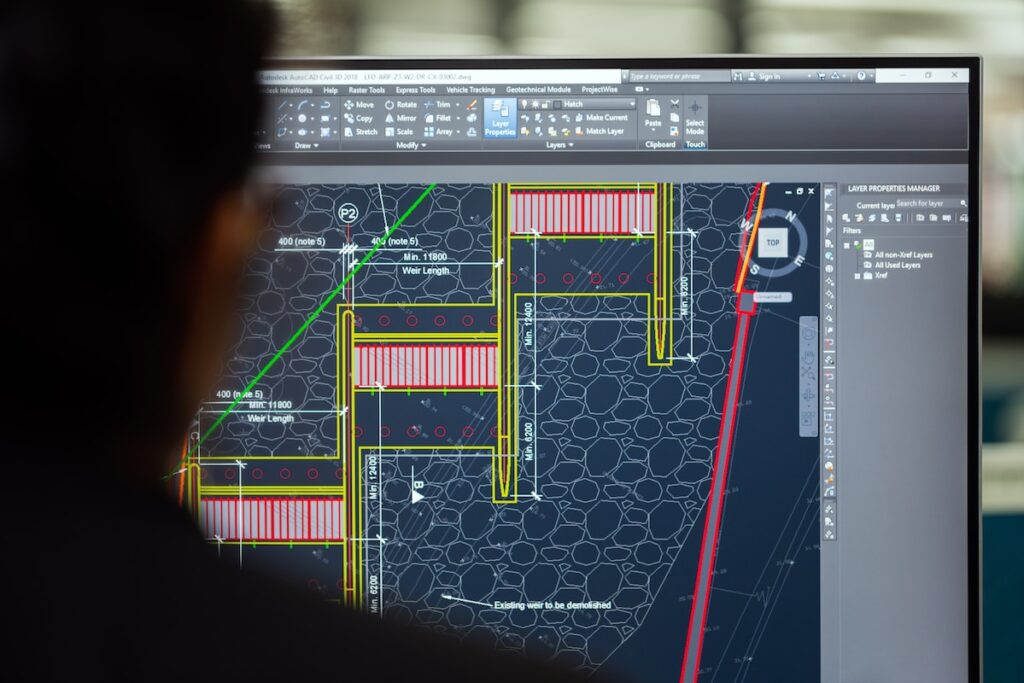Introduction
A Bachelor of Technology (B Tech) is an undergraduate engineering degree that provides technical education and training to students. A B Tech program equips students with knowledge and skills to work in the field of engineering, technology, and applied science. The degree is highly valued and has gained immense popularity among students looking to enter engineering careers globally.
Importance and popularity of B Tech programs
A B.Tech degree holds high importance due to the following reasons:
- It helps students acquire technical abilities, problem-solving skills and analytical thinking – attributes that are highly valued in the industry. Most engineering jobs require candidates to have strong technical knowledge with a practical approach towards solutions.
- B.Tech programs incorporate industrial training and internships into the curriculum. This allows students to apply their learning in real-world settings and gain first-hand professional experience.
- The degree provides specialized knowledge in chosen engineering domains, which enables students to take up domain-specific job roles. Popular B.Tech specializations like Computer Science, Electrical Engineering, Civil Engineering, Mechanical Engineering, etc. open up plentiful career avenues.
Owing to these advantages, these programs have gained immense popularity among students worldwide. The degree is widely considered to provide a successful career foundation for engineering aspirants across countries and cultures.
Understanding the B.Tech Program Structure
Overview of programs
A B.Tech program typically has a 4-year curriculum divided into 8 semesters. It includes a mix of:

- Core engineering subjects related to the chosen specialization (like Mechanical, Computer Science)
- Foundation courses in Maths, Science, Humanities and Management
- Practical lab sessions and workshops
- Industrial training, internships or capstone projects
The focus is on applied learning where students work on real-world engineering problems and solutions.
Common specializations offered in B.Tech
Some of the most popular specializations are:
- Computer Science and Engineering (CSE)
- Electronics and Communication Engineering (ECE)
- Electrical and Electronics Engineering (EEE)
- Mechanical Engineering
- Civil Engineering
- Chemical Engineering
- Biotechnology
- Aeronautical Engineering
- Petroleum Engineering

Importance of selecting the right specialization
Choosing the right engineering specialization is crucial because it determines one’s:
- Core subjects and curriculum during the degree
- Career opportunities and job profiles after graduation
- Salary packages offered in specific industries
Prospective students must factor in elements like:
- Personal interests and aptitude
- Market demand and trends
- Nature of work in domains
- Average entry-level pay scales
This ensures satisfaction and growth in their chosen field after completing the degree.
Duration of B.Tech Programs
Factors influencing the duration of B.Tech programs
The standard duration to complete it ranges from 4-5 years, based on:

1. University/Institute policies
- Autonomous institutes can customize their academic calendars, semesters, policies which impacts program duration
- Affiliated colleges need to follow standards set by parenting Universities
This leads to minor variations in degree timelines across institutes
2. Country-specific regulations
- Local academic bodies and technical education governing authorities define degree guidelines, curriculum structures in different countries – which tends to impact the duration
Standard duration of B.Tech programs
The table below captures the standard timeframe to complete full-time B.Tech programs across major countries:
| Country | Duration |
|---|---|
| India | 4 years |
| United States | 4 years |
| United Kingdom | 3 years |
| Canada | 4 years |
| Australia | 4 years |
However, the typical duration can vary by +- 6 months across institutes due to autonomy or regulations.
Now, let us understand the country-wise timelines:
1. India
- A full-time program in India spans over 4 years with 8 semesters
- Each year consists of 2 semesters with 16-18 weeks of academic workload per semester
- Students need to complete mandatory internships and project work in addition to required credits
The degree is affiliated and regulated per UGC guidelines by respective technical universities across states.
2. United States
- A typical 4 year Bachelors degree is offered requiring 120-150 credits of coursework
- Students take 15-16 credit hours of classes per semester
- Some core engineering and advanced math classes are pre-requisites to program completion
The programs need to be accredited by ABET – an international body that upholds quality standards.
3. United Kingdom
- Equivalents like BEng or BSc Engineering degrees span 3 years
- Each year has three terms of 10–12 weeks
- Alongside taught classes, industrial placements need to be completed before graduation

Programs are regulated by Engineering Council bodies like IET, IMechE depending on specialization.
4. Canada
- A 4-year Bachelors of Applied Science is offered by universities
- Every academic year has 2 semesters spanning 13-15 weeks each
- Students need to balance assignments, lab tests along with lectures and tutorials
Degrees are approved by Engineers Canada or respective provincial regulators.
5. Australia
- A standard full-time course is completed in 3-4 years
- The program may be divided into specific credit points tied to subjects
- Students get opportunities for paid internships as part of their program
Degrees need accreditation from Engineers Australia to ensure quality benchmarks.
Accelerated and Extended B.Tech Programs
Accelerated B.Tech programs

In Accelerated programs, students can graduate faster by:
- Cramming additional credits per semester – around 18-20
- Enrolling in summer or winter semesters
- Opting for advanced placements to skip introductory classes
- Choosing credit transfers – porting credits from other degrees
Advantages and disadvantages
Advantages
- Time and cost savings for degree completion
- Faster entry into the workforce or research
Disadvantages
- Pressurizing course loads each semester
- Limited co-curricular exposure
- Restricted internship timelines
Eligibility criteria
Students need to demonstrate:
- Excellent past academic track records
- Ability to cope with higher volume of coursework
- Approval and compliance with institute policies
This ensures they can manage the demanding accelerated schedule.
Extended B.Tech programs
At times, students may need to extend their degree duration beyond the standard 4 years owing to:
1. Reasons for an extended duration
- Academic failures requiring repeating of subjects
- Temporary withdrawal due to personal reasons
- Extra time needed for research or internships
- Financial constraints leading to reduced course loads
2. Identifying an extended B.Tech program
Indicators of an extended schedule:
- Enrollment duration exceeding 8 semesters
- Part-time track with limited subjects per year
- Customized graduation timelines
Most institutes allow such additional time flexibility under special approval cases.
Flexibility in B.Tech Durations
Understanding flexible B.Tech programs

Flexible B.Tech programs offer customization options related to:
- Number of subjects enrolled per semester
- Duration of academic terms – 3,4 or 6 months spans
- Custom semester start dates – spring or fall cycles
- Class timings – evenings/weekends to suit work schedules
This helps students accelerate or prolong their degree timelines based on individual needs and constraints while retaining continuity.
Part-time B.Tech options
Part-time programs allow working professionals to complete B.Tech over an extended duration by:
- Pursuing fewer subjects per semester
- Getting exemptions from non-core subjects
- Enrolling in evening/weekend classes
The programs take 5-6 years compared to full-time 4 year degree while balancing work commitments.
Online B.Tech programs
In online programs, students can:
- Access recorded lectures, virtual labs using internet and computer
- Select flexible enrollment sequences – number of credits/subjects per term
- Write online assignments, tests; video calls for project reviews
- Complete degrees from foreign institutes without immigration
Such programs allow modifying degree timelines as per individual pace and capacity.
Impact on career prospects
While accelerated tracks fast-track entry into jobs, graduates from extended/part-time/online programs are equally competent and employable.
Top companies focus on students’ technical abilities rather than degree completion timelines during hiring, given practical industry training is not compromised.
Additional Considerations for Completing B.Tech

Internships and Co-op programs
- B.Tech students can optimize academic breaks for pursuing 1-2 professional internships
- These provide in-depth industry exposures further boosting employability
Research opportunities
- Students keen on research can utilize projects or thesis submission to build specialized technical skills
- This helps them prepare for competitive postgraduate studies ahead
Project work
- Condensing 8th semester for just capstone projects tied to corporate challenges is an upcoming trend
- Adds relevant experiences valued by recruiters and academia
Completing such co-curricular undertakings alongside prescribed coursework enriches the B.Tech journey making students’ career future-ready.
Conclusion
Recap of the duration of B.Tech programs globally
In summary, the standard timeframe to complete full-time on-campus Bachelor of Technology programs across countries are:
- India – 4 years
- United States – 4 years
- United Kingdom – 3 years
- Canada – 4 years
- Australia – 3 to 4 years
Considerations for prospective B.Tech students
When embarking upon B.Tech education, students must evaluate options related to:
- Degree durations – standard, accelerated or extended tracks
- Flexibility elements – part-time, online modes
- Curricular requisites – internships, research, projects
This will allow customizing their journey based on personal and professional needs.
Importance of planning and choosing the right program duration
Choosing the appropriate program duration by aligning academic timelines with individual constraints and goals is crucial for students to extract maximal value from their degree while kickstarting their careers.
Meticulous planning focused on maintaining work-life balance helps students complete exciting real-world exposures alongside conceptual coursework. Graduating as an industry-ready technocrat equipped with strong technical expertise as well as life skills is the hallmark of a well-spent, holistic B.Tech program.







